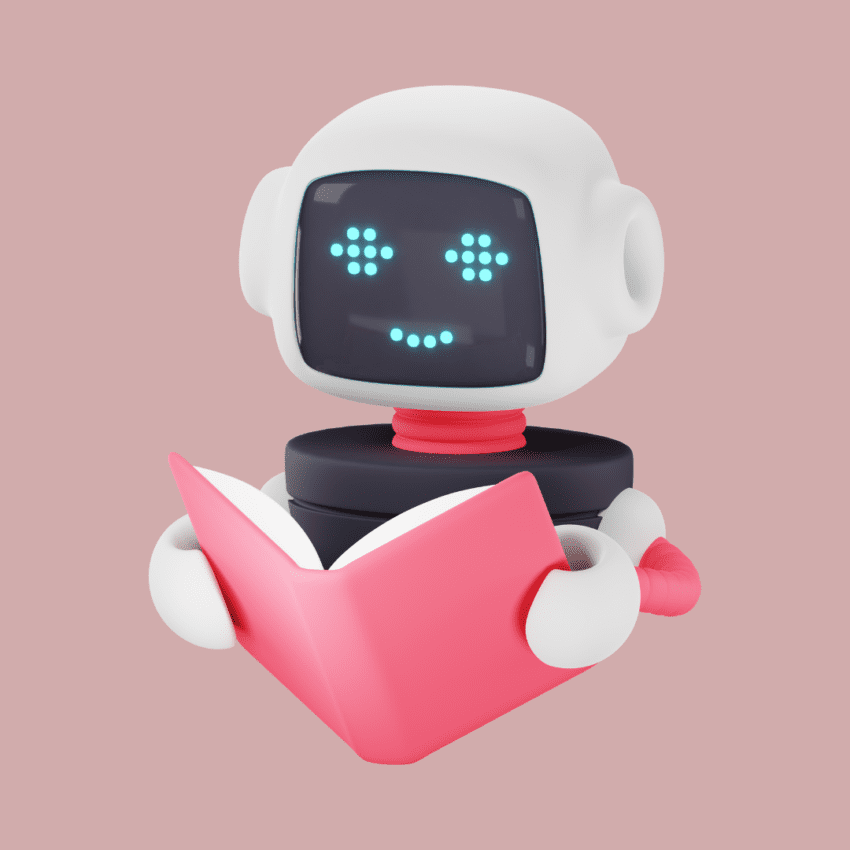It seems like everybody’s talking about AI, so what is it all about?
Artificial Intelligence (AI) is a wide-ranging branch of computer science concerned with building smart machines capable of performing tasks that typically require human intelligence.
In a nutshell, its like asking Google or Alexa, but getting a lot more in-depth explanation and analysis – of course both Google and Alexa (and other tools) have AI behind their operations in order to supply a response – AI can however, go a step or two further.
Here are a few types of AI and how they learn:
- Machine learning: This type of AI uses algorithms to learn from data, without being explicitly programmed
- Deep learning: This is a type of machine learning that uses artificial neural networks, which are inspired by the structure of the human brain
- Natural language processing (NLP): This type of AI deals with the interaction between computers and human language
- Computer vision: This type of AI deals with the ability of computers to interpret and understand visual information
- Robotics: This type of AI deals with the design, construction, operation, and application of robots
So how do we use these types of AI applications?
AI is already being used in a wide variety of applications and in day-to-day tasks, including:
- Self-driving cars: AI is used to control the steering, braking, and acceleration of self-driving cars
- Virtual assistants: AI is used to power virtual assistants like Siri, Alexa, and Google Assistant
- Facial recognition: AI is used to identify people in photos and videos, and for mobile phone logins
- Medical diagnosis: AI is used to help doctors diagnose diseases and illnesses from laboratory tests and x-ray
- Fraud detection: AI is used to assist in detecting fraudulent activity, such as credit card fraud and unusual transactions
So how do I know all this, well I asked AI of course!
As AI develops and expands its knowledge it has the potential to provide many benefits – I asked AI to list these, here are the results:
- Increased productivity through automated tasks that are currently performed by humans, which can free up workers to focus on more creative and strategic tasks
- Improved decision-making: AI can analyse large amounts of data to identify patterns and trends that humans may not be able to see, which can help make better decisions
- New products and services: AI can be used to develop new products and services that were not possible before
- Increased safety: AI can be used to improve safety in a variety of industries, such as transportation and manufacturing
Whilst these benefits are fairly general, AI will evolve over time aiming to make tasks easier and perhaps cheaper such as changing the traditional manufacturing processes and streamlining production.
AI, however, also poses a number of challenges, including:
- Job displacement: As AI becomes more sophisticated, it is possible that some jobs will be displaced
- Bias: AI systems can be biased, which can lead to unfair or inaccurate decisions
- Safety: AI systems can be hacked, which could lead to dangerous consequences
- Ethics: There are a number of ethical issues surrounding AI, such as the use of AI in warfare
What can AI do for the Family Historian & Genealogist?
AI is a rapidly developing field, and it is difficult to predict what the future holds. However, it is clear that AI will continue to have a major impact on our lives. It is important to start thinking about the challenges and opportunities of AI now so that we can be prepared for the future.
Some uses for genealogy and family history could be (but not limited to):
Automating tasks
AI can be used to automate many of the time-consuming tasks involved in genealogical research, such as transcribing records, Latin transcription and searching for online records. Automating tasks is a big plus when it comes to managing time and asking AI to create a spreadsheet or a presentation or to brainstorm an idea, can help with time management.
Identifying connections
AI can be used to identify connections between people in genealogical records, which can help to break down brick walls in research. Test it in Excel or Google Sheets. Use an AI tool to extract from your dataset, anyone with the surname SMITH, or use it to identify any geographical commonalities. Of course you will need a dataset initially, but this could be taken from a family history programme and analysed separately.
Making predictions (this was an answer from AI…)
Apparently, AI can be used to make predictions about people’s lives, such as where they were born or who they were married to – I have yet to test this out though!!
Identifying photographs
Historical photographs through websites such as MyHeritage and the Reimagine photo app, uses AI to date photographs. It is thought that this will expand to face recognition and help to identify people from images uploaded – a potentially useful tool for a genealogist.

DNA analysis – this could be a useful way to use AI in DNA analysis, finding matches that are not visible on first glance – AI can be used to pull out data, a bit like using a sophisticated formulae to dig deep through hundreds of results. AI is already being used by DNA testing companies such as Ancestry, MyHeritage and FamilyTreeDNA to find matches and reporting through visuals such as Thrulines for common connections.
Asking questions
Ask AI a question and it will give you a range of answers, expand the explanations and change the format, say into a table or a presentation, or even an email response. The more questions that are asked of AI, the more clever the responses will be over time, even expanding into predictions and advice. Basic questions like: tell me what Artificial Intelligence is – will give you a good level of explanation. Ask AI then to expand this to include the technical aspects behind AI and it will give you that too. Ask it to now translate it into French, or explain it to a primary school child, it will do this too. For the genealogist and historian, ask AI to explain what was happening in a certain year in a certain place to give context to a piece of writing, or who were the leading figures in the suffrage movement – ask AI anything.
Where can I get an AI assistant?
The current big players in AI are currently (and there are others both free and paid versions):
ChatGPT – 3.5 version https://chat.openai.com/
Bard – Google’s version of AI – sign in with Google account to save the responses https://bard.google.com/
Claude – Microsoft Edge version of AI https://claude.ai/
In summary
AI is here to stay and, similar to social media many years ago, not everyone is on board. But as AI grows and its knowledge expands, the potential is there to automate and make tasks easier. The flip side is the unknown. Where things may go wrong, predicting something incorrectly, or interpreted negatively. The results that AI gives need to be cross checked to ensure that the data is correct – so could this be duplicating work rather than simplifying tasks? There are still questions to be asked about AI’s capabilities and reliability.
Researchers research! Its what we do. We research by delving into an archive, either online or physically. Even if a record has been digitized, nothing can beat finding something that wasn’t captured during the scanning process. Can AI note all the extra scribbles that were noted on a census document? What about if there was something written on the back? AI is not intelligent enough to know about the history of a particular family line or the human emotions attached to historical events. It doesn’t do feelings or emotion.
My own thoughts are that whilst these AI tools are still in development, I will continue to learn about it and use it as an extra pair of hands. AI cannot replace the traditional research, visiting sites, graveyard hopping and digging within a paper archive – there are just some things that are best kept to the human researcher, for now at least!

#Glasgow #Strathclyde #MSc #QualifiedGenealogist #Historian #Mentor
© J Kenyon
